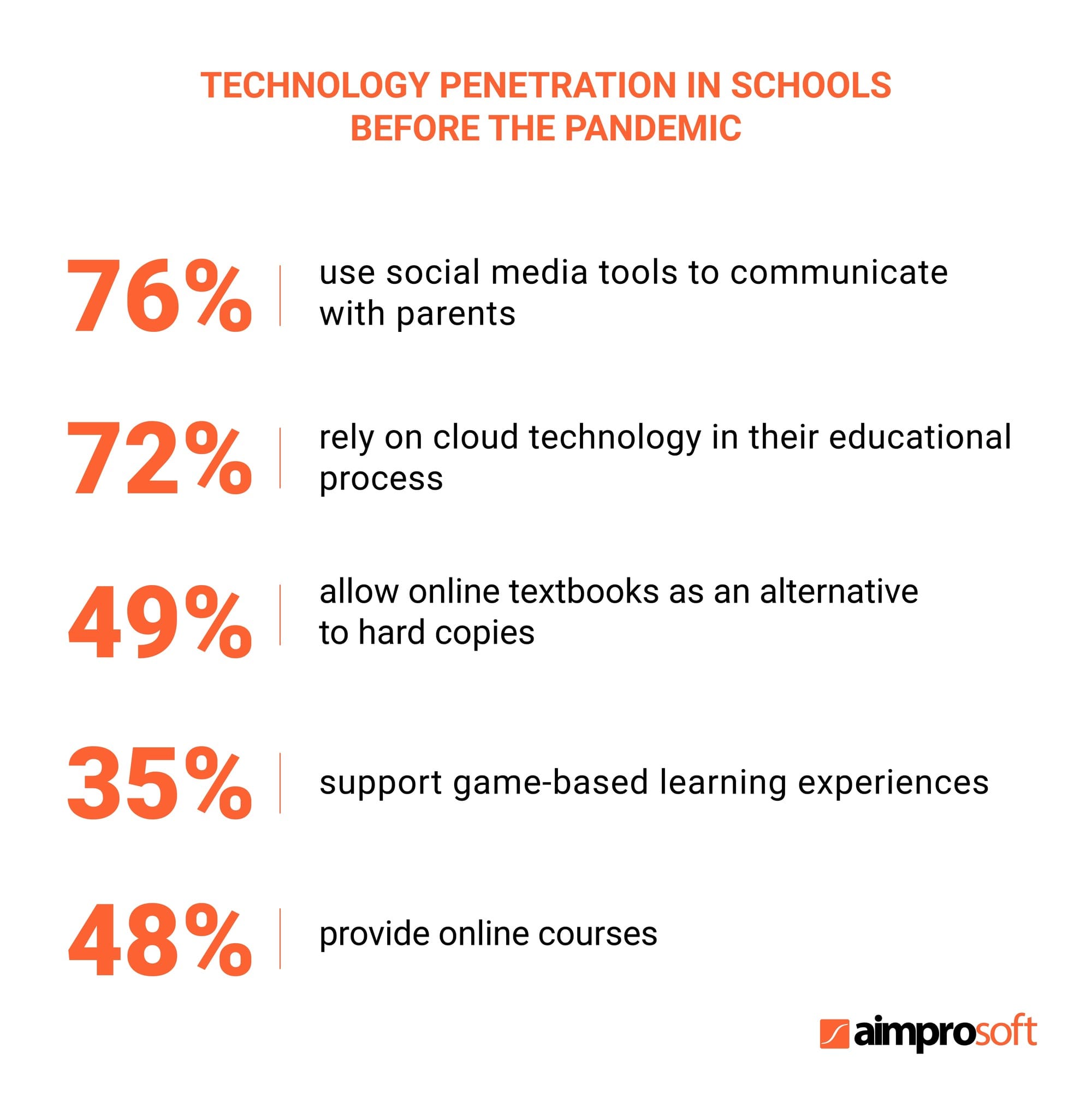How to Launch an EdTech Startup in 2022
Current vision about an EdTech concept

The roots of what we take as a core of elearning go back to computer-based training emerged in the 1970s. EdTech is often synonymous with online education, but in fact, this very concept includes the entire set of digital tools aimed at improving the efficiency of the educational process.
If you have an entrepreneurial spirit and want to apply your gust to education, you will be named edupreneur, an edtech entrepreneur.
In addition to online schools, interactive courses, and educational applications, there are vendors of electronic systems for educational institutions, training equipment, VR simulators, platforms for corporate training, and other products on the market.
Sorting out, EdTech refers to the usage of technological power to improve or manage the learning process while elearning is a way of internet-based learning as an alternative to a traditional classroom.
EdTech market is on a roll: why you should start an EdTech company in 2022
Education is one of the world’s largest industries, accounting for over 6% of GDP. Holon IQ analysts predict the total volume of the global education market will reach $7.3 trillion by 2025.

Getting used to the thought that education will be a $7 trillion industry in just three years, you are on the clock to start an educational technology company. Let’s go through the chief movers and shakers that set the pattern for change in the sector.
Education throughout the life
People want that learning is not a tedious, necessary measure but an entertaining process. It is possible to make education this way and at the same time attractive to investors with the help of technologies that are available in their variety on the market.
Lifelong learning brings grown-ups:
- Knowing a little bit about everything to be market adaptive
- Spotting new opportunities to fill knowledge gaps
- Widening career perspective with adjacent skills
Self-motivated acquisition of knowledge during life by interests or for the sake of a profession is what people want. For adults, the reasons can be deepening knowledge in the profession, gaining new experience in hobbies, experimentation, and an interest in discovering something new to be proud of their achievements. Children are interested in everything if this “everything” is playfully delivered and fascinating. One thing is clear, an agiotage around lifelong learning catalyzes edtech startup ideas, and following one of them to create an elearning website is never a bad choice.
Picked academic demand for digital education
There were preconditions for digitization of education long before schools closed their doors for in-person instruction and moved classes online in spring 2020.

During COVID-19, K-12 and higher education sectors experienced the most extensive growth because people had to master new technology tools to continue the educational process:
-
Teachers had to instruct students with a proper engagement on a computer from their living rooms in a way unfamiliar for the majority.
-
Students were not wholly prepared to fully switch to the remote mode suffering from a lack of motivation despite being native to technologies.
-
Parents wished to get a piece of relief delegating efforts on technology to take control of the learning process.
-
Schools started hunting for tools to have a go at distance learning.
-
Portable device adoption in education was growing demonstrably, mostly due to new opportunities from the internet connection.
Even though digital adoption snails comparatively to other sectors globally, it is forecasted that education spendings for digitization will reach $404 billion by 2025. The new technological landscape in K-12 and higher eds raises an ocean of new opportunities for startups to meet the needs of all stakeholders beyond creating a language learning app.
Investors adore EdTech
$10.76 billion is a figure of record-breaking venture capital investments that took off at an unprecedented clip by 2020.

Yet on a pre-seed round, figures count $2.1 million to support Maqsad, a startup from Pakistan, aiming “to make education more accessible to 100 million Pakistani students.” It is a good ground for R&D and growth activities, isn’t it?
Leap, a US-Indian two-year-old startup focused on helping students with abroad education issues, raised $75 million in total in 2021 in Series B and C. Apart from intensive investors Sequoia Capital India and Jungle Ventures, Owl Ventures and Harvard Management Company joined the forces to supported EdTech undertaking, finding it promising.
Another example, Panorama Education, serves 25% of American schools, having backed with $60 million funding to provide an education software platform helping educational institutions to understand their K-12 students with surveys. In its turn, NoRedInk, a San Francisco-based startup, got a $50 million Series B support to help students get back on track with writing skills, which demonstrates the renewed interest of investors in the sector.
Zoomers are your trend-setters
“We should be the Zoomers” by the opinion of Megan Gerhardt, professor of leadership and management at the Farmer School of Business at Miami University. Named by Zoom and constrained by pandemic communication that was the most demanded during forced home isolation in 2020, the Zoomers are ready to be educated in a native to their virtual life in a social network way where they are always on their chatting.
To back it up with supporting evidence, Screencast-O-Matic recognized that technology explosion happens with youth first bringing up field professionals in good time. With orientation on students’ lifestyles, a company started a platform enabling both teachers and students to get interactive communication via video streaming with screen sharing in their classrooms.
A platform where educators can adapt their orthodox approach to delivering exciting, immersive content instead of dull lectures provided in a native to the Zoomers format is worth considering if you want to launch an edtech company.
People hunger for accessible and affordable education
While the prices for college tuition and fees increased with a pretty hefty rate of 32% for the period 2011-2019, according to the US Bureau of Labour Statistics, housing and textbooks, for instance, may claim for a significant budget share of the families.
Deliberating to launch an edtech startup, you can do a favor for millions of families. Be it a MOOC or digital tutorial hub, you can provide a less expensive offering combined with greater accessibility than a traditional one if you create a website like Udemy, for example. By betting on digital, you can attract the target audience with a quick update, revision, and distribution of educational materials as well as affordable course taking.
31 EdTech unicorns worldwide
Unicorns are young startups that were able to reach a capitalization of $1 billion in a short time. The term itself was coined by the founder of the American fund Cowboy Ventures Aileen Lee to underscore the rarity of the phenomenon in 2013.
Note: while this overview was being composed, the world got richer for one more unicorn.
Among over 800 unicorn companies, 31 are from the EdTech sector with a collective valuation of $91 billion, which shows the big time for the undertaking. The latest members of “the nine zeros club” are Emeritus with certified education from top-tier universities, upGrad global online higher ed to accelerate career, and GoGuardian for schools’ management.
Tutoring, language learning, corporate learning, test preparation, online post-secondary and curriculum, and career planning are impressive but far from the full list of clusters where you can find yourself to hit the unicorn list.
Original Article: https://www.aimprosoft.com/blog/how-to-start-an-edtech-startup/

